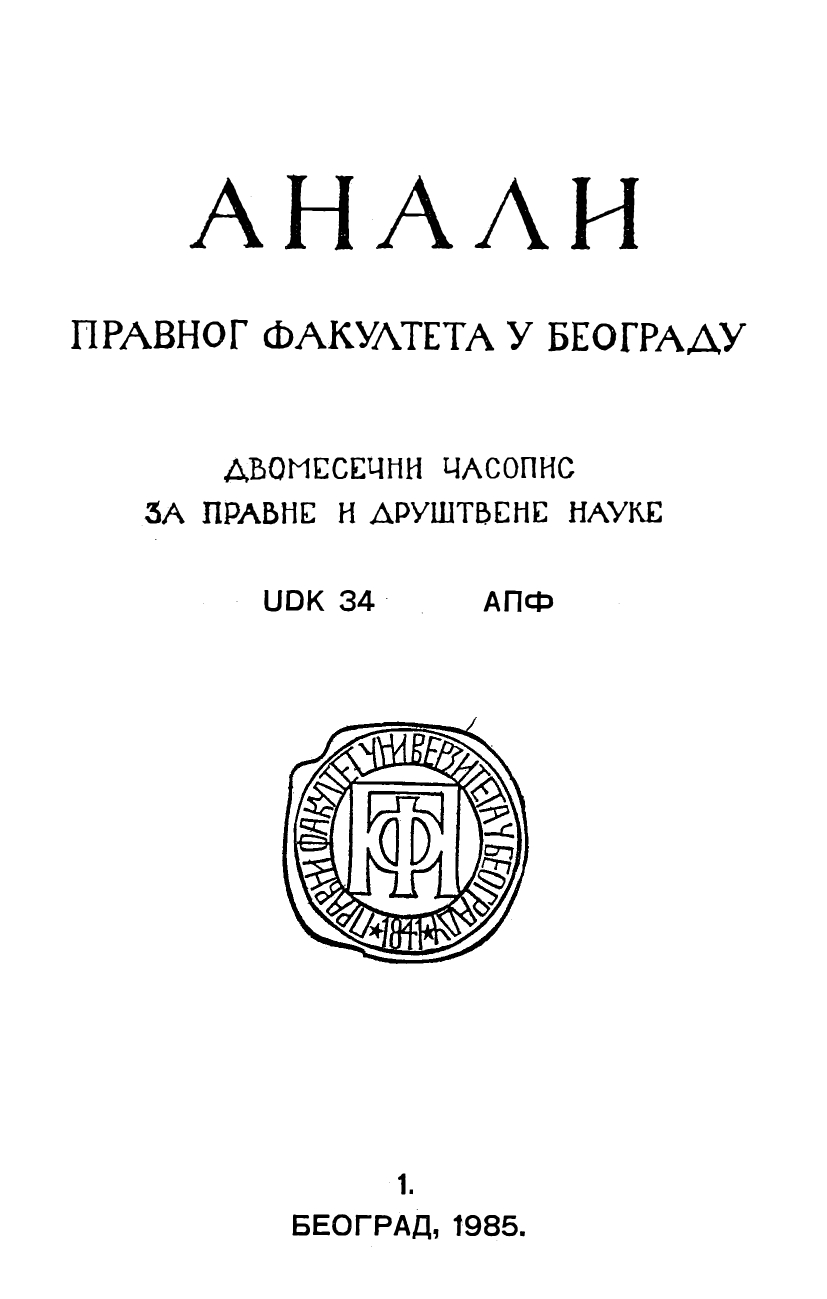ПОЧЕЦИ АГРАРНИХ БОРБИ У PИMУ
THE BEGINNING OF AGRARIAN CONFLICTS IN ROME
Author(s): Miroslav MiloševićSubject(s): History, Economic history, Political history, Ancient World
Published by: Правни факултет Универзитета у Београду
Summary/Abstract: 1. Contrary to the hypercriticism that the conflicts between the patricians and the plebeians (509—367 B. C.) were of an exclusively legal- -political nature, the author is of the opinion that the major role was played by economic and, above all agrarian factors. Apart from facts in sources this is supported by the general socio-economic conditions of the early Republic. This does not mean that the entire ancient tradition of agrarian conflicts is altogether reliable, but still it can be criticaly opposed only by analysis of particular concrete historical episodes of this kind. 2. The heart of the tradition regarding Sp. Cassius the promoter of the first agrarian bill, if narative details and other inaccuracies are put aside, is certainly authentic. At first glance the incredible proposition that the Roman Territory be given out to the plebeians and Latins, shows that in the first decades of the Republic there existed strong political currents that tried to resolve the social tensions and misunderstandings with the Latin allies — a current that was, out of still unknown reasons, defeated in 486 B. C. by the extreme patrician tendencies. 3. Facts on the setteling of the plebeians on the Aventin, ancients writers have conveyed in forms that are close to the sources. Here the primary legal framework, consisting of the Confiscation Act and the Plebiscite giving the hills to the plebeians, is condensed into the lex Icilia. Due to the urban character of this region in the Classical Period, the agrarian meaning of the project was blurred. 4. The conquest of Veii and the giving of its territories to the plebeians in 383 B. C. represent a turn point in agrarian history prior to the Punic Wars.: it showed that the interests of the patricians and the plebeians were not made compartible, but also that territorial expantion was the condition for internal social equilibrium.
Journal: Анали Правног факултета у Београду
- Issue Year: 33/1985
- Issue No: 1
- Page Range: 98-109
- Page Count: 12
- Language: Serbian

